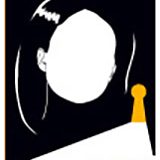
Kolot: The Center for Jewish Women’s and Gender Studies, Kolot’s Rosh Hodesh: It’s a Girl Thing!, Miami
Navigating the challenges of adolescence is no easy task. The program “Kolot’s Rosh Hodesh: It’s a Girl Thing!” provides a supportive monthly forum for groups of teenage girls. Led by a trained adult facilitator, the girls socialize, learn, and engage in hands-on activities. The premise of the group is to celebrate the new Jewish month and then use the theme of the month as a springboard for discussing other issues relevant to adolescent girls. Now in its second year of national implementation, data has indicated that the program has a positive effect on the self-esteem of the girls who participate. “Adolescent girls today travel in a teen culture that makes dangerous values and risky behaviors…seem normal,” said Dr. Catherine Steiner-Adair, a clinical instructor at Harvard Medical School. “…this program…gives girls a deeper and more meaningful connection to Jewish culture, women, rituals and values.” Targum Shlishi funded the establishment of two Rosh Hodesh groups hosted in Miami, with additional groups planned for the future. “Targum Shlishi planted the seed for ‘Kolot’s Rosh Hodesh: It’s a Girl Thing!’ in Miami, making it possible to bring this program to Jewish adolescent girls in the area. With Targum Shlishi’s help, we believe this program will keep growing and make an impact on the lives of Jewish girls in Miami,” said Mindy Shapiro, national project director for Kolot.

LILITH magazine, investigative journalism fund, website improvements, and Spanish translations, New York City
LILITH magazine is a Jewish women’s quarterly now in its twenty-eighth year of publication. The magazine is dedicated to exploring the interrelationships of Jewish identity and feminism. Targum Shlishi’s funding supports three projects:
- An investigative journalism fund to help LILITH maintain and expand its in-depth reporting, which in the past has resulting in groundbreaking articles on topics such as the growing market for Jewish women’s eggs in the IVF marketplace.
- Website improvements to increase content and user-friendliness.
- Spanish translation and dissemination of previous LILITH articles, including posting the translations on the website in a dedicated section to be created.
Click here to read “An Interview with LILITH’s Editor”.

Edah, Women and Orthodoxy, test cities
Targum Shlishi is providing funding for Eday to initiate a model program for Simchat Bat celebrations. The long-term goal for this program is to make the observance of Simchat Bat celebrations, which welcome the birth of daughters, normative and universal in the Orthodox community. Currently, Simchat Bat celebrations occur only sporadically in most Orthodox communities and are viewed as being elective in nature. There is also no standard format for Simchat Bat celebrations.
The lack of consensus and standardization contribute to the sense that such celebrations are optional and that welcoming a baby girl is less “important” than welcoming a boy. In order to change the status quo, Edah will select five congregations in different cities and work with them to evolve a way of making Simchat Bat celebrations normative. The idea behind the project is that the celebrations that occur after the birth of a child set in place the religious values inherent in raising that child. Thus, to put into place a celebration of the birth of daughters will help advance the acceptance of a more prominent and central role for Jewish women within the tradition.

Women’s International Zionist Organization (Florida), Workshops for Single-Parent Women, Miami
The Women’s International Zionist Organization (WIZO) is an international organization that serves the needs of women in Israel and promotes Jewish education throughout the world. Established in 1920, it has more than fifty federations and 250,000 volunteer members worldwide. Targum Shlishi’s funding is being used to establish a twelve-session workshop for single mothers in the Miami area. The workshop will focus on developing and strengthening parenting skills such as strategies for stress management, financial management, communication skills, and assertiveness training.
One Voice: Jewish Women for Israel, Website Improvements and Take Five: Call the President for Israel, New York City
One Voice is new organization, founded in 2002 in response to crises in Israel. It is a coalition of eleven national Jewish women’s organizations united in support of Israel. The organizations represent a broad spectrum of political and religious views. One Voice has spearheaded four national call-in days to the president, congressional representatives, and the Finnish government in support of Israel. Targum Shlishi’s funding supported two initiatives – the revamping of the organization’s website and a national call-in day to the president held October 22, 2003, called “Take Five: Call the President for Israel.” “Targum Shlishi’s funding has helped us extend our reach,” noted Sari Kahn, director of programming. “We now have a user-friendly website that can educate women on the Israeli-Palestinian conflict, as well as inspire them to become advocates for Israel.”

Jewish Orthodox Feminist Alliance, Fifth International Conference on Feminism and Orthodoxy, New York City
Targum Shlishi was a sponsor of the conference, “Women and Men in Partnership,” the fifth international conference on the topics of feminism and orthodoxy organized by the Jewish Orthodox Feminist Alliance (JOFA). The conference focused on both the attempts to increase opportunities for women within the Orthodox tradition and also on broader social problems that effect the Orthodox population as a whole.

Mavoi Satum, Targum Shlishi Legal Aid Fund for Agunot, Jerusalem
Founded in 1996, the Jerusalem-based organization Mavoi Satum, which translates literally as “Dead End,” is an advocacy organization calling for justice, compassion, and change in the struggle of Jewish women whose husbands will not grant a get (a Jewish writ of divorce). These women are known as agunot and mesuravot get. Mavoi Satum offers legal services to these women; since its founding, the organization has helped more than ninety women obtain divorces and has helped countless more through its education and advisory programs.
Targum Shlishi’s funding provides financial assistance to help women pay for legal services. “We are very excited about working with Targum Shlishi and grateful for the foundation’s generous donation,” said Judith Garson Djemal, co-chair of Mavoi Satum. “Having the funds to help women through the legal process is tremendously beneficial. The get has, unfortunately, become a tool by which men can attempt to run away from their responsibilities and extort money, property, and custody from their wives. Women have to fight back. Good legal representation is essential if women are to obtain their freedom.” In the first five months of the Targum Shlishi Legal Aid Fund for Agunot, the program enabled eight women to use professional legal services to further their cases in the divorce process. Two of these women received their get.
Click here to read case studies of women who have been helped by Mavoi Satum.

